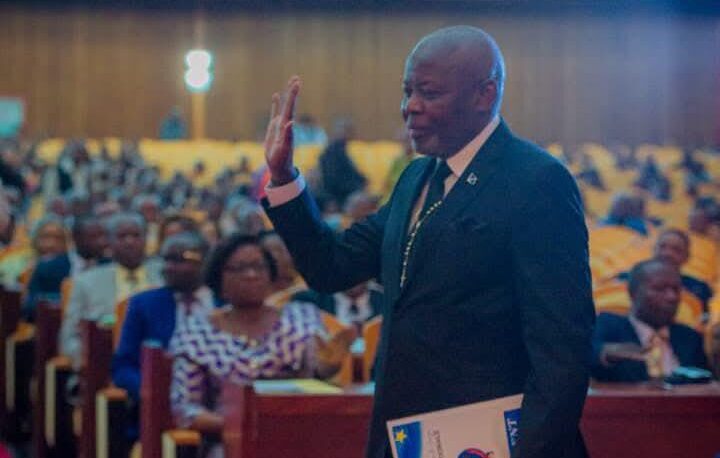The President of the National Assembly, Vital Kamerhe, announced on Monday 22 September 2025 his resignation as head of the lower house of Parliament. The announcement was made before the Conference of Presidents, an advisory body that brings together the leaders of parliamentary groups. He was one of five members of the bureau targeted by petitions from MPs calling for their resignation on grounds of mismanagement and incompetence.
The grievances against him include alleged incompetence, financial malpractice, obstruction of parliamentary scrutiny and a lack of transparency in the management of the chamber.
Pressure becomes unbearable
For several days, the former chief of staff to President Félix Tshisekedi had seen his position become increasingly precarious. A special commission chaired by MP Peter Kazadi and composed of 22 members had been tasked with examining five petitions targeting not only Vital Kamerhe, but also four other members of the Assembly’s bureau: Jacques Djoli (rapporteur), Dominique Munongo (deputy rapporteur), Chimène Polipoli (quaestor) and Grâce Neema (deputy quaestor).
Although his resignation had been anticipated after several weeks of political tension, it has sent shockwaves through the national political scene. Vital Kamerhe, a major figure in Congolese politics and a strategic ally of President Félix Tshisekedi, had held this position since 2024.
A departure to avoid humiliation
On Monday morning, as the plenary session was preparing to examine the Kazadi Commission’s report, Kamerhe took his detractors by surprise by submitting his resignation to the Conference of Presidents. “He preferred to leave the table before any humiliation,” said a member of parliament close to the case. His decision thus avoids a vote that would have required an absolute majority of 251 votes out of 500 members of parliament to confirm his dismissal.
The plenary session, convened by First Vice-President Isaac Tshilumbayi, was held in a tense atmosphere. Tshilumbayi is now acting as interim head of the lower house, pending the election of a new bureau.
Another resignation 16 years after the last one
As in 2009, history seems to be repeating itself for Vital Kamerhe. Back in 2009, Kamerhe resigned as Speaker of the National Assembly under pressure from the Kabila regime after disavowing the entry of Rwandan troops into North Kivu. Sixteen years later, history is repeating itself, but this time under a different president, with whom he had sealed a historic alliance in 2018.
His resignation, which he presents as a “sacrifice for unity”, could also serve as a springboard for him to bounce back, as in 2009. But in the short term, it opens up a period of uncertainty in the National Assembly, where the reshuffling of the bureau could redraw the balance of power within the majority and the opposition.
Written by Akilimali Chomachoma

